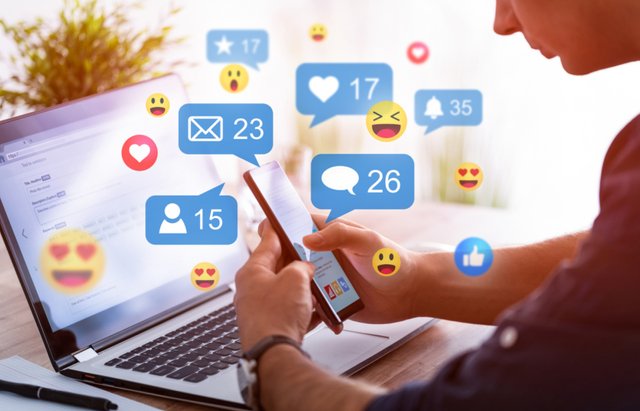Study: Facebook and Snapchat addicts are more inclined to cruel and offend others

A recent study revealed that Facebook and Snapchat addicts are more likely to use websites for cruel and hurtful purposes.
Many studies confirm that social media is addictive, but how is this repeated use directed? And on what sites exactly?
This is exactly what researchers at Michigan State University and California State University wanted to answer, so they conducted their first study comparing problematic use between Facebook and Snapchat, while also revealing surprising results about users ’personal features.
Researchers define the term "problematic use" of social media as the condition in which symptoms similar to substance use disorders are seen.
This includes, for example, conflict with other users, due to the use of social media and relapse when trying to stop using social media.
"Both Facebook and Snapchat have separate features that make users want to come back and use these platforms," said the cognitive neuroscientist and associate professor at the University of Michigan, House of Michigan.
He added: "We were interested in measuring the problematic use and social rewards that people might search for when they were used."
The study, which was published in the Addictive Behaviors Reports, followed 472 student participation on both platforms and attempts to discontinue their use, in addition to problematic use.
The researchers also asked participants to fill out a questionnaire that measures their preferences for social rewards - or the types of social interactions they enjoy - such as liking, negative, social interactions, sexual relations, sociability, and finally, negative social effectiveness.
"We found that the participants spent more time on Snapchat compared to Facebook, and also showed more problematic use of Snapchat," said Michi, surprisingly, according to his opinion, that the participants reported more attempts to leave Facebook.
Facebook and Snapchat addicts are more cruel
While the research team did not verify the mechanism that attracts the problematic use of the two sites, they found a parallel psychological dimension in the two platforms.
"We have found a relationship between problematic use on both platforms and negative social effectiveness, which is people's desire to be cruel and hurtful, and to use others for personal gain," said Michi.
For example, questions have been asked about the existence of pleasure from embarrassing or angering other users.
Michi explained that people with the most problematic use scored higher preference levels for negative interactions; The more problems, the more the group will enjoy negative social interactions.
It turns out that negative social interaction and likes (impressed by others) and communication are all positively linked with the problem of using Snapchat, but only negative social interaction is related to Facebook.
Another interesting discovery was the amount of attempts to stop using Facebbok, which contrasted researchers' expectations.
Currently, nearly 3 billion people around the world use social media, according to statistics (Statista, 2020), knowing that it controlled the largest share, as it attracted, for example, 80% of people between the ages of 18 and 24 years.
Snapchat also became very popular with the same age group, at 78%, according to a Pew Research Center study.
Various uses and behaviors
Each of these two sites has different functions that can affect user behavior.
For example, regarding messaging, Snapchat stimulated messaging when it created the "snapstreak" function, which rewards users for messaging each other on a daily basis.
As for Facebook, it does not provide this service, and accordingly the effects of the platforms differ along with the motives.
While Facebook and Snapchat addicts think that the reasons revolve around the entertainment, convenience, attractiveness and ease of these two sites, neuroscience has shown that individuals ’motives in the bottom line are to obtain social rewards.
Michi explained that understanding the social reward preferences related to problematic use is essential for clinical psychologists while treating patients.
If a patient complains of problems using these platforms, the doctor will have a clearer picture of what drives the patient socially to use these platforms in the first place, thus helping him